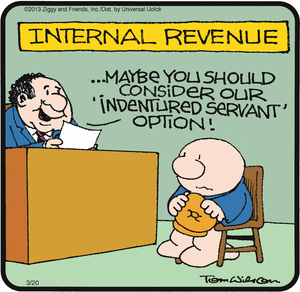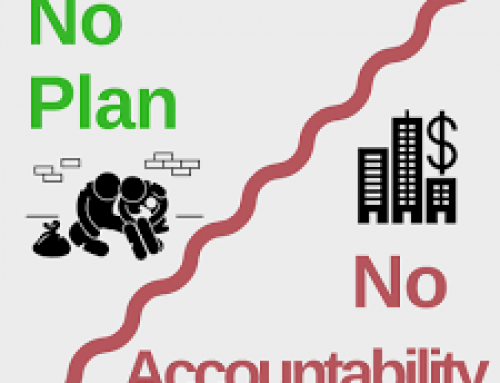March 9, 2015
By: Kelly Diamond, Publisher

Abraham Lincoln didn’t free the slaves, he redrew the plantation lines and they are identical to that of the U.S. border. Indeed, we are equal now. Equal indentured servants to one central master. I guess it makes sense. Chattel slavery had its economic place in many human civilizations. Prior to the automation and mechanization of many functions and tasks, there was manual labor. American slave owners looked at their slaves as business investments; the way a business owner might look at a machine. They maintained it, kept it functioning, and put it to work.
With the advent of the cotton gin and overall social evolution, the acceptance of slavery waned. But blacks didn’t just walk off the plantations and live happily ever after. A new phrase which was a hybrid of slavery and free agency was introduced: indentured servitude. The theory was, if I – the former slave owner/master – pay for your food, your roof, and your healthcare, and I no longer own you, then you are no longer my responsibility, but rather you must pay your way. Those goods and services were provided by a store from which the former slave must buy at exorbitant prices they couldn’t afford so as to keep them indebted to their former owner. The only way to pay the debt is to work it off.
That also was later abolished as a form of usury.
The state must have scooped up the idea because now here we are surrounded by various state monopolies, being forced to pay for goods and services from the state, at prices that are outrageous, and left to work off the debt incurred in our names. Still feel free?
So imagine yourself working. You claim all your dependents on your I-9 form. Turns out they under-garnished your wages and you owe more come April 15th. You have every intention of paying off your debt to your master. But in the meantime, you can’t go anywhere until that debt is paid.
What?! Denying, limiting, or revoking passports for people who owe $50,000 or more to the IRS.
That’s what is currently being debated on the congressional floor. You probably wouldn’t recognize it unless I told you it was buried in a “highway safety” bill; kind of like stuff about student loans was buried in the Affordable Care Act having to do with health insurance.
It goes without saying where I stand on the whole idea of taxation as a general practice, but what really grinds my gears is when people honestly make the effort to comply, and by the very nature of a convoluted and self-contradicting tax code, can’t manage to get it right, and those folks are still punished.
People get it wrong. More often than not, this isn’t an intentional mistake. People don’t want to pay fines, interest, or penalties. Nor do they want to deal with the IRS. They just want to live their lives in peace and pay their taxes in hopes of accomplishing that. So when they owe in the end, they are fine to pay it if they are given adequate notice and time to pay the difference.
Here’s the problem. This net casts wider than just the criminal tax evader who never intended to pay. This also snags people who do intend to pay, but can’t turn it around in ten days. The IRS reviews your taxes, determines that and what you owe, and issues a notice. If you don’t pay it in ten days, the lien is filed. So what becomes of the family that planned a trip to Europe in June? Is the summer vacation cancelled? What about those that rely on international travel for their jobs? Do they just stop working?
The reason for travel is really irrelevant, quite frankly. No free individual should have to explain themselves as to what their purpose is for going from A to B in the first place. But certainly their right to freely do so should not be infringed because the master reviewed their tab, and they were still short at the end of the year!
(As a side note, while the taxpayer has 10 days to pay their tax debts, the IRS has 30 days to lift the lien once you do pay. Ten days to scrape together $50,000… 30 days to click a button and remove a lien. Let that sink in.)
Indeed there is a lot of resistance to this (which is representative of the last vestiges of humanity), mainly stemming from the constitutionality of such a law (or lack thereof).
Contributor to Forbes, Robert W. Wood, writes: “The idea–introduced several times over the last few years–is a little like requiring you to pay all your outstanding parking tickets to register a vehicle or renew your driver’s license.”
Currently, such restrictions are already in place for those who are delinquent on child support payments, and the threshold is much lower. The state will restrict or take away someone’s driver’s license, and they absolutely will restrict international travel.
A few things become rather obvious, however.
- The U.S. is clearly desperate for revenue. Between FATCA and this idea here, it would seem the U.S. will stop at nothing to take what’s yours.
- Passports and licenses to travel in any way are not for public safety, but rather for control over the plantation.
- We are not as free as the taglines and politicians say we are if our freedom to travel is so precarious that if I didn’t know better, I’d would think it was downgraded to a privilege.
It’s incredible that so much focus is laid upon the burden of the taxpayers, and such effort is put into holding them “accountable” for the debts mounted in their name by the state… and yet no such effort is made when it’s time to hold the government accountable for all their spending.
In any case, cross your T’s and dot your I’s, but don’t let the US government cage you in! The laws are deliberately complex, created under the guise of catching criminals, but with every intention of snagging the little guy. Internationalizing yourself might offer you a layer of protection from such actions, and certainly is worth looking into.




